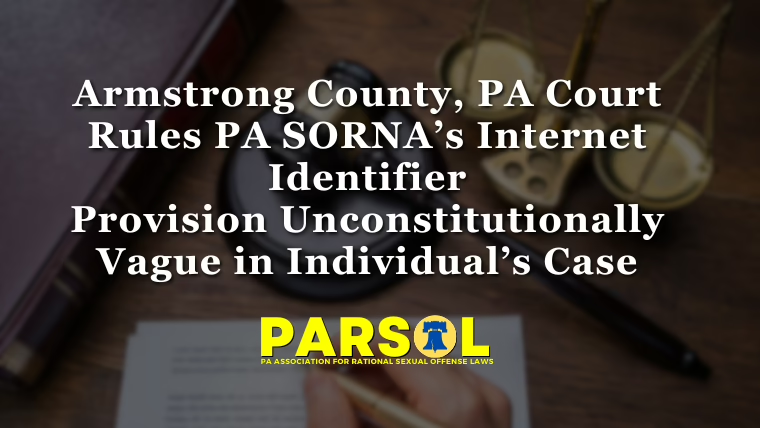At the heart of the 2024 PARSOL Fall Conference’s opening plenary, Pennsylvania Executive Deputy Attorney General Robert Reed, Esq. delivered an impassioned address centered on justice, empathy, and systemic reform. This keynote captured the challenges marginalized individuals face and proposed transformative strategies to create trauma-informed systems that honor humanity. Reed’s presentation illuminated the path toward a compassionate and equitable society through anecdotes, policy insights, and a heartfelt call to action.
A Vision Rooted in Justice and Empathy
Reed’s keynote began with a powerful reflection on his career-long commitment to justice. Drawing from his 30-plus years in the U.S. Department of Justice, Reed acknowledged the complexities of striving for fairness within imperfect systems. He underscored that empathy and respect must underpin efforts to reform organizations like the Department of Corrections, which have historically perpetuated cycles of trauma for both the incarcerated and those working within these environments.
Highlighting PARSOL’s mission, Reed praised its dedication to a justice model centered on prevention, dignity, and trauma-informed care. “We need to have a society that sees each other as human,” he asserted, emphasizing the critical need for compassion in policymaking and advocacy.
Understanding Trauma as a Root Cause
Central to Reed’s address was acknowledging trauma as a foundational factor influencing behavior and societal outcomes. He pointed to the work of trauma expert Sandy Bloom, who has spent decades advocating for systems that address the emotional wounds affecting individuals and communities. Reed emphasized that trauma-informed approaches are essential across sectors, including the education, healthcare, and justice systems.
For instance, he described efforts to train Pennsylvania police officers on trauma sensitivity, a groundbreaking initiative to change interactions between law enforcement and the public. Similarly, the Pennsylvania Department of Corrections has begun educating its staff on trauma, marking a critical step toward systemic change.
Safety and the Scourge of Scams
During a recent conversation with PARSOL staff, Reed became aware of the wide extent to which scammers actively use registry data, including employers, home addresses, vehicle information, etc., to target registrants.
Reed spoke candidly about the pervasive insecurity in modern society, from unsafe cultural environments to the prevalence of financial scams targeting vulnerable populations, including scams against individuals on the registry for sexual offenses, exploiting their fear and isolation.
His message was clear: awareness and self-advocacy are key defenses against such threats. “Nobody from the government is going to call you up and ask for money,” he stressed, urging attendees to verify claims and report fraudulent activity. “Scams aren’t just a consumer protection issue, it’s people breaking the law.”
Reed shared four critical facts about scams:
- Scammers pretend to be from an organization you know, such as the police, parole or probation, the courts, etc., or from an organization threatening you with blackmail.
- Scammers propose a problem or prize, such as missing a court date, technical issues with supervision or registration, or obtaining exploitative information about you.
- Scammers pressure you to act immediately.
- Scammers tell you to pay money in a specific, often untraceable way, such as cryptocurrency, gift cards, or cash.
Trauma-Informed Justice: From Courtrooms to Prisons
“A trauma-informed justice system extends to all levels, from courts to correctional facilities,” added Reed, who detailed efforts to create trauma-sensitive juvenile and criminal justice systems in Pennsylvania. He cited the inclusion of reentry courts designed to provide collaborative, rehabilitative opportunities for individuals leaving incarceration.
Especially inspiring to conference attendees was Reed’s engagement with incarcerated individuals where he witnessed transformative moments of self-realization and hope. “People are almost stunned to hear that they can heal and recover,” he shared. These interactions underscore the importance of addressing childhood trauma as a predictor of future behavior and advocating for restorative practices over punitive measures.
Community Engagement, the PA Reentry Council, and Change
Throughout the plenary, Reed emphasized the role of lived experience in fostering understanding and driving change. Stories, he noted, humanize abstract policy discussions and reveal the systemic failings that often trap individuals in cycles of harm. He highlighted initiatives like the Pennsylvania Reentry Council (PARC), which brings diverse stakeholders together to address reintegration barriers, including housing, employment, and education.
Reed thanked PARSOL staff, including managing director John Dawe, legislative director Randall Hayes, and board members Lisa Perry and Lisa Kessler-Peters, who serve in volunteer leadership roles within PARC, including heading a special committee on reentrants with sex offenses.
The Road Ahead: A Call to Action
“Change is brewing,” Reed declared, urging attendees to join efforts to build a more humane society. From training police officers and judges to creating trauma-informed schools and communities, he painted a picture of progress fueled by empathy, collaboration, and persistence.
He also underscored the importance of personal resilience, advising attendees to prioritize their mental and emotional well-being. He suggested that simple practices like mindfulness and cultivating supportive relationships can help individuals navigate the stress of advocacy and systemic challenges.
In closing, Reed encouraged individuals to share their stories, citing the profound impact of personal narratives in changing perspectives. By integrating stories of lived experience in advocacy, trauma-informed training sessions, and system reform, decision-makers can better understand the realities faced by those they aim to serve.




![stuckIn1995_rally_header - PARSOL - Pennsylvania Assoc for Rational Sex Offense Laws (PA Megan's Law Resources) PARSOL Board Chair Josiah Krammes speaks at the PA Capitol Rotunda flanked by State Reps. Emily Kinkead and Tim Briggs (28 Oct 2025) [John Dawe/PARSOL]](https://parsol.org/wp-content/uploads/2025/10/stuckIn1995_rally_header.avif)